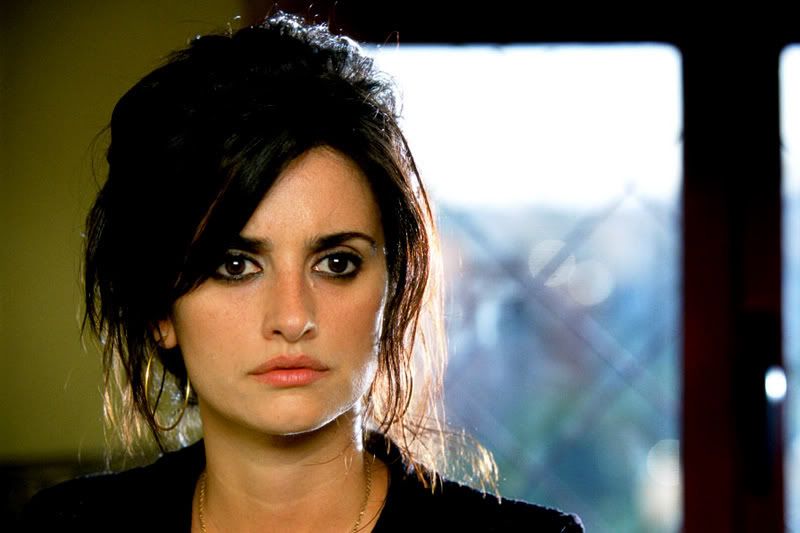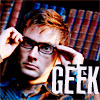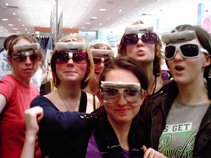Last Autumn I decided to keep a log of all the books I read and then write about them. It lasted a pitiful two months before I delayed and let a mound of Christmas reading pile up on me. In any fact, here is my log for October.
October 2006
Books I’ve Booked
“House of Leaves”, Mark Z. Danielewski
“Snow”, Orham Pamuk
“Leaves of Grass”, Walt Whitman
“The Ode Less Travelled”, Stephen Fry
“Life of Pi”, Yann Martel
“Special Topics in Calamity Physics” Marissa Pessl
“Kafka on the Shore”, Hauki Murakami
So. Here I go, embarking on yet another copy-cat idea, hoping this lasts more than previous endeavours have done. Previous attempts to chronicle every film I’ve ever seen (yes, really) or update my journal regularly have failed. This time, the person I’m aping is Nick Hornby – writer, father and dedicated follower of fashion. (Okay…the last line’s not true, it should read Arsenal Football club, but I wanted to stick in a Kinks reference in there somewhere. Consider this an apology). As well as writing witty, melancholy, madly sucessful novels like “About a Boy” and “How To Be Good”, Hornby has also written two non-fiction books. One is about his love for music (31 Songs) and the other, which I’m taking the liberty to steal from shamelessly, is called The Polysyllabic Spree and is an account of his reading habits every month.
My efforts will be a little different, for a number of reasons. The most obvious is Nick Hornby is a 40-something male with lots of money to splurge on book-buying, while I’m a teenage girl who gets most of her reading material from the library. Another crucial difference is Hornby writes for a publication (The Believer) which forbides any slagging of any kind. Thus, Hornby is required to grant books he disliked anonymity. I won’t be. If I don’t like something, I’m prepared to slag it off. Hopefully, though, this will be kept to a minimum. Celebrating the great is always more fufilling than demeaning the bad.
After that succint introduction, I’ll begin my account for October. Bear in mind, now, that my idea came to me at the start of November, so I’m relying on my memory (not a hugely reliable resource, I warn) to help me. Some books I mention may well have been read at the end of September and I’m almost cetainly leaving out some books. Oh well. If I’ve forgotten them, they probably weren’t worth discussing (I’m sure I’ll regret that statement sometime shortly).
October is one of my favourite months. There’s something about the crisp air and crunch of leaves, the golden afternoons, that make me turn into a super scholar and an even better reader. Walking home with the lights fading around you, clutching a notebook and folder through fallen leaves suddenly seems more magical than it obviously is. With this in mind, I look over the books for this month. Some unusual choices, poetry for one. A huge debut novel that divided critics like the Berlin Wall. A novelist who won some little prize recently (nothing major..). And a rereading of the post-modern magnum opus, “House of Leaves”.
I’ve read HOL before. It must have been a year ago, perhaps longer. I borrowed it from the library, read it in a couple of days, took it back. Recommended it to a few people. Forgot about it. Then, earlier this year, I was reminded of it when I came across a review of the authors new book, “Only Revolutions”. I began to look into it, intruiged. Somewhere along this line, I started getting interested in HOL again, and was slightly embarrassed to realise I couldn’t remember much of it. Ask me to tell you the plot? Recount what I liked and disliked about it? Not a chance. So, it was with a tinge of shame that I borrowed the huge tome again, promising myself I’d read it properly this time, a reading I’d remember. Take your time, I said. Dwell on it. Take it in.
Of course, I didn’t dwell on it. I read fairly quickly and it’s a stuggle to slow my eyes down. I’ll come back to this later. I finished the book in 3 days (which isn’t that fast, but there is a lot of reading in this book!). Instead, I switched my brain on fully as I read and tried to take as much of it in as I could. It worked, thankfully. Now, onto the actual book. For those of you uninitiated (it can’t be that many), HOL is the debut novel by Mark Z. Danielewski. It has all the stylistic features you’d expect of a post-modern author with big ambitions – A story within an story within a story, pages of footnotes, different words printed in different coloured ink, secret codes, pages filled with writing crammed into every available surface and pages with only one or two lines of text. Of course, it claims to be real. But what of the actual story? Firstly, let it be known I enjoy the Russian-doll method of stories with stories. Paul Auster does it beautifully in Oracle Night. Why, I even did in in 5th class when I wrote “The Black Horse” (appearing in all good bookshops this Spring) when I was 11. And Danielewski does it well here. Most of the time, anyway . I found myself tiring of the two main storylines, constantly switching from one to the other, and I admit I may have skimmed past parts of Truant’s story, finding Zampano’s book more interesting. Skimming is essential in this novel, actually. Who’s actually going to read through the thousands of names of photographers somewhere in the middle? The very technical bits about houses were also read fairly swiftly. But, I do think HOL is a really good book. People may criticise it for being too ambitious, for trying to pack too much in and that is true, however, I think Danielewski just about pulls it off. It got genuinely creepy at parts and I did enjoy the claustrophobia in the text that mirored the storyline. It’s a grand idea, huge and sprawling and confusing. But it is to be admired.
Ultimately, HOL is a full, interesting read. It won’t be topping my list of favourite books anytime soon, purely because I prefer books where I invest some emotional worth into, which HOL failed at, for me at least. But, I don’t think that was the intention.
I mentioned above that I tend to read fast. This is probably the main reason poetry and I don’t get along. Poetry needs and deserves to be savoured, admired slowly, dwelt on. My quick eyes protest to this. I’ve been making efforts lately, picking up collections of poetry at a random page and trying to puzzle out the meaning of whatever poem falls open. Stephen Fry’s entertaining book, “The Ode Less Travelled” is a marvellous aid to the poetry-novice, urging the masses to Read Poetry Aloud. It’s with that in mind that I took Walt Whitman’s “Leaves of Grass” from the library. I’ve been interested in Whitman since I read Michael Cunningham’s “Specimen Days” that involved Whitman, like the his previous novel “The Hours” dealt with Virginia Woolf.
“I celebrate myself and sing myself
And what I assume you shall assume
For every atom belonging to me as good belongs to you”
Stephen Fry’s right. These words need to be shouted off a cliff somewhere or proclaimed from a podium. I haven’t read the whole of LOG (who does that with poetry? And anyway have you seen the size of it?) but the parts I have read stick in my mind. And they sound great when spoken aloud.
Gee willikers! I’m on my third page already. Still got a number of books to namedop and still sitting in my pjs on this Sunday in November with the albatross of school hanging annoyingly around my neck. Speaking of school, the next book I’m talking about will be “Special Topics in Calamity Physics” by Pessl. One of the few books I actually purchased this month (possibly the only) and one of the ones I enjoyed the most. There was a lot of hype about this book, mostly articles about how pretty, wealthy and well-read she was. Then there were a lot of articles that mentioned the articles about how pretty, wealthy and well-read she was. So, in a desperate struggle to break from the mold, I’m not going to mention how pretty, wealthy and well-read she is. Oh, shit.
I could call this book pretentious if I didn’t hate the word and like the book so much. Evey chapter is named after a respected novel (Brave New World, The Trial etc), there are numerous references to texts both real and imaginary during the story and it ends with a Test. It’s a very long book. It’s also very funny, clever and enjoyable. Blue Van Meer, the adolescent narrator, is very likable and tells her story with so much enthusiasm and so many unusual metaphors, the whole thing is a delight to read. It reminded me a lot of “The Basic Eight” by Daniel Handler, a book I’ve read twice this year because I love it so much. The two books have a similar narrator, an infectious smart-alecky style and a murder buried somewhere in both their plots. Handler’s book just about tops “Special Topics” purely because of length. He manages to introduce as many characters and obscure references in half the time, and is better for it.
Speaking of being concise…I’ve managed to waffle on at length and still leave out some books that I’ve read this month, including the magnificent “Kafka on the Shore” (yup, I actually use the word magnificent. And mean it, too). There’s not much I want to go into to about this book, apart from the fact it touched me and I got that incredibly calm feeling I get when I read Murakami. The Pamuk…I’m ashamed to say I never finished it. I picked it off my father’s shelves at a lull in the middle of the month (I was between library visits) and read the first three hundred pages. It’s nicely written and informative, but it didn’t grab me and I was shortly side-tracked by other literature. I plan to grapple with the wretched thing and finish it soon, though. Wait. That sounds way too negative. I did enjoy what I read, but it was tough going. Sorry, Orhan. Oh, well. I’m sure you’re too happy after your Nobel prize to care. And quite right too.
Subscribe to:
Post Comments (Atom)



No comments:
Post a Comment